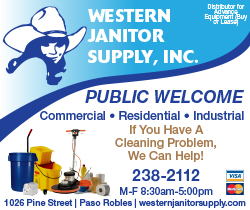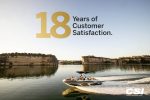Is it time to start recycling wine bottles?
Wine bottle recycling to wash and reuse bottles
Venture to be only in U.S. producing reused, refillable wine bottles
By Cyril Penn

Wineries in California fill some 250 million cases of wine a year at an average cost of roughly $6 per case or $1.5 billion a year. Wine bottle production is also a major contributor to a winery’s carbon footprint. One group estimates that wine bottle manufacturing generates 60 percent of the carbon released in the winemaking and bottling process.
Refillable wine bottles have been used extensively by wineries in Europe for years, but two California companies that years ago went into the business of washing and re-selling used wine bottles ultimately threw in the towel.
Furthermore, the two top companies making bottle washing machines, have sold hundreds of machines throughout the world but none in the United States.
Now, however, a California start-up expects to make a viable business out of reusing glass wine bottles. Times have changed: technology for washing, sorting and removing wine bottle labels has improved; the price of new glass has increased, making reused bottles more cost-competitive; and consumer demand for all things sustainable and green is at an all-time high.
The new company, Wine Bottle Recycling LLC, plans to provide refillable bottles to wineries at competitive prices. It will set up a centralized facility to collect, sort, de-label, wash, sterilize and repackage wine bottles for resale to commercial wineries and believes the product will be less costly while helping wineries realize their “sustainability” goals. The company will be based in Stockton, California, at a 92,000-square-foot facility, previously a Del Monte fruit cocktail plant.
The venture was started by Bruce Stephens, who got the ball rolling after trying to find used bottles for his home winemaking group in Sonoma, California. Stephens knew that wine bottles were reused in Europe and he had heard of a California-based company that washed wine bottles and resold them. It turned out, though, that the company hadn’t washed bottles for six years.
Stephens spent the next several months putting a business plan together and lining up investors. He expects to start collecting bottles this fall, to start the label removal and washing process this November and to start shipping washed bottles to wineries early next year.
Past Efforts
Entrepreneurs in Berkeley, California, had tried to start a bottle washing business, but lacked sorting equipment and later the ability to get ice-proof and pressure-sensitive labels off of the bottles. The concept didn’t draw the scale needed to make enough of a profit and was ahead of its time.
The company had a sorting machine; but when ice-proof label glue came out, the labels became harder to remove and, soon after, pressure sensitive labels gained popularity. Early pressure-sensitive labels would peel off by hand, but the glue would be difficult to remove. Evergreen employees had to scrape labels off bottles by hand, one at a time, with razor blades.
“Once the pressure-sensitive labels got developed and refined, that was the kiss of death,” said Chris Ronson, an industry pioneer and now one of Stephens’ partners. “Bruce hunted me down and convinced me to come back in. We were just ahead of our time. We can prove it is a sound concept.”
High-tech Equipment, Changing Consumer Demand
Stephens said new machinery available in Europe uses “facial recognition software” to measure the shape and thickness of the bottle, including the punt, for an exact match and can process 72,000 bottles every hour. He will use an automated de-labeling system to remove labels and adhesive.
“The key is that the sorting machine will sort each bottle to the manufacturer’s specification for color and weight–which is what the wineries want,” Stephens said. “The sorting has gotten much more sophisticated and the de-labeling can be automated.”
“Now that the price of new glass is $6 to $7 per case, it is reasonably profitable to do this,” he said. “Enough so that it’s worth the investment. Back in 1995, there wasn’t enough profit to warrant the investment in that automatic sorter.”
Ronson said consumer demand for recycled glass drives business. He said that years ago customers would only buy recycled glass if it was cheaper than new glass but that they are now willing to pay the same price for used glass because it is environmentally sound. He predicts his customers will wind up selling more wine. “From a marketing standpoint, using the recycled bottle is a huge advantage,” he said.
Sourcing bottles “shouldn’t be a problem,” said Bill Dodd, a supervisor in Napa County and another partner in the company. He said the company will source through multiple sources, including material recycling facilities and wineries.
“It is a great concept,” Ronson said. “Timing is everything in business, but (Evergreen) started too early. That’s all changed. This is 2009 and people are ready for this.
“The first guy on the street with our bottle will be very successful because he can truly say it’s a green wine,” said Ronson. “I’m sure that a winery will be able to command a better price because of it. Back in 1995, I tried to pitch the concept to wineries, and they were reluctant; they weren’t sure what the acceptance would be. Today, just about everything you sell has an environmental issue to it.”
Plans also call for a mobile on-site label removal service for re-labeling full bottles, which will remove labels on up to 1,000 cases a day. “There are hundreds of thousands of cases sitting in warehouses that would want this,” Stephens said. “Nobody has ever offered an on-site solution where the wine doesn’t have to be taken out of bond and sent via freight.”
“We use only 4.23 percent of the energy to process our bottles as what it takes to make a new bottle,” Stephens said. “So basically, for every 10,000 cases of our bottles that a winery uses, they can reduce CO2 output by 45.2 metric tons.”
Contact info:
Wine Bottle Renew
2716 E Miner Avenue
Stockton, CA 95205
(209) 462-6500
http://www.linkedin.com/company/wine-bottle-renew-llc





















